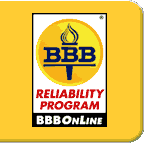Introduction to Baseline Proficiencies
These proficiencies address topics in the syllabus for
Math 130 - 131. You must
pass all the proficiencies by the end of Math 131. When you have passed a
proficiency,
you have passed it forever (i.e. if you make a mistake later in the semester on
a topic for
which you have passed the proficiency, you do not lose your “passed” status on
that
proficiency).
Although you do not officially have to satisfy the
proficiencies until the end of the
spring semester, it is critically important that you take them seriously from
the beginning
of MAT 130. This list of proficiencies includes information about when in the
semester
you should get extra help if you haven’t yet passed each proficiency. It is YOUR
responsibility to seek out extra help and to do what you need to do so that you
can pass
them by the end of the course. You can ask your instructor, your TA, or the
Office of
Academic Advising for information about getting help with a baseline
proficiency.
Ways to Satisfy Baseline Proficiencies
Each description of a baseline proficiency also includes a
list of possible ways to
satisfy that proficiency. These lists might be modified a little as the year
progresses. In
fact, if you can think of a way to satisfy a proficiency that is not on the
list, please feel
free to suggest it to your instructor. If it’s a good suggestion, he or she will
bring it to the
other Math 130/131 instructors for approval. Here are descriptions the most
common
ways of passing proficiencies.
Test/Quiz Questions: You will always have more than
one opportunity to use test or
quiz questions to satisfy a baseline proficiency. Generally, there will be
several
opportunities incorporated in your regular, in-class tests and quizzes. The Math
130/131
instructors will also arrange extra sessions for students wishing to try
additional test
questions.
Test/Quiz Revision: If you make significant
progress toward satisfying a baseline
proficiency on a test/quiz, but aren’t quite there yet, your instructor may give
you the
option of revising your answers. You will redo the questions, and then explain
both your
mistakes and your new solutions. These explanations may be oral or written (your
instructor may only accept one of these for a particular problem). Your
instructor may
also ask you to solve problems similar to the ones on the test. You will have a
brief
interview with your instructor so that s/he can ask you a few questions to be
sure that you
really do understand your revisions.
Instructor Interview: If you believe you understand
the baseline proficiency and feel
you can explain your understanding better orally than in writing, you may
arrange for an
instructor interview. Sometimes such interviews can take place during the normal
part of
class, if your instructor deems it appropriate.
Detailed Description of Baseline Proficiencies
Topic I: Introduction to Problem Solving, Reasoning,
and Communication
1. Problem Solving:
To satisfy this proficiency, you need to solve a non-trivial problem that is
new to
you, which involves making a table, finding a pattern, and doing at least one of
the
following things:
a. Extending the pattern to a large number, given by your
instructor
b. Finding an equation for the pattern
c. Giving a “convince a skeptic” argument that the pattern continues
This is only one type of problem that we will be working
on in class, but it is a
very important type of problem, one that is especially important not only for
developing
problem solving skills, but also for developing algebraic thinking skills. Your
instructor
will help you get a sense of what constitutes a “non-trivial problem.” For some
specific
problems, you might not be able to use part c to satisfy the proficiency.
Ways to satisfy the proficiency: Test/quiz
questions, test/quiz revision, or instructor
interview. There will be many test/quiz opportunities throughout both semesters
to pass
this proficiency.
You may also satisfy this proficiency with an out-of-class
project, accompanied
by an instructor interview, at which you will be asked to explain your solution
and to
extend it to a similar problem. This project must be an individual, not a group ,
project.
When to get extra help: If you haven’t satisfied
this proficiency by Thanksgiving, you
should start doing some extra work to try to finish it before the end of the
semester. If
you are still having trouble, Topic VII could help a lot, however, you should
meet with
your instructor as soon as you start study algebraic thinking, to make a plan to
help you
satisfy it by the end of the course.



